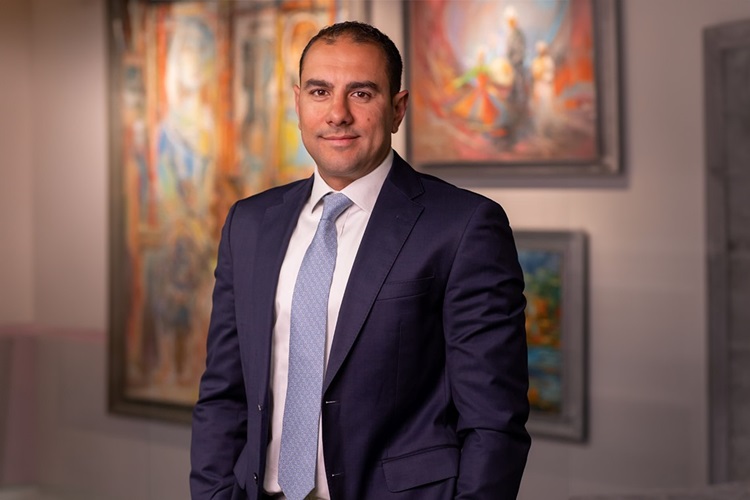Projections indicate that the entertainment market size will reach SAR 14.4 billion by 2028
KSA aims to increase the economic contribution of the cultural sector to reach 3% of the GDP by 2030
LOGIC Consulting, a leading EMEA consulting firm, conducted a study titled ‘The Evolution of Saudi Arabia’s Culture and Entertainment Sectors: Transformational Progress Towards Vision 2030,’ underscoring the significance of cultural and entertainment sectors in diversifying the economy and driving the non-oil economy in line with Saudi Vision 2030.
Mostafa El Ghorab, Senior Partner and Managing Partner KSA LOGIC Consulting, highlighted the four main focus areas of the study: ‘A Comprehensive Look at the Evolution of Saudi Arabia’s Cultural and Entertainment Sectors,’ ‘The Impact of Cultural and Entertainment Sector Growth on the Tourism Industry,’ ‘Institutional Frameworks for Both Sectors,’ and ‘Balancing Public and Private Funding for Financial Sustainability in the Cultural Sector’. These key areas underline Saudi Arabia’s progress in its cultural and entertainment sectors, positioning them as pivotal to achieving the Saudi Vision 2030. The study underscores the role of these sectors in diversifying the economy away from oil dependence and significantly contributing to the national GDP, while also playing crucial roles in sustainable economic development.
Regarding the cultural sector, El Ghorab added: “Saudi Vision 2030 focuses on three key elements: a vibrant society, a thriving economy, and an ambitious nation. The vision’s objectives for the cultural sector include preserving and promoting the Islamic, Arab, and national heritage of the Kingdom. This will increase KSA’s contribution to arts and culture, developing and diversifying entertainment opportunities to meet the needs of the population, as well as bolstering the Kingdom’s position as a distinguished global destination for tourism and culture.”
The study highlighted the Kingdom’s commitment to developing a sustainable entertainment sector that enhances the quality of life for residents and visitors as well as elevates lifestyles across various regions of the Kingdom. This sector has become an economic driver contributing to economic diversification. The study also pointed out Saudi Arabia’s significant efforts in this sector, which has undergone a profound transformation with rapid growth and an increasing number of entertainment events. The entertainment market reached approximately SAR 8.7 billion in 2023, and projections indicate that the sector will grow at a compound annual growth rate of 10.44% to reach a market size of SAR 14.4 billion by 2028.
The General Entertainment Authority (GEA) is one of the key components of the Saudi Vision 2030. It was established in 2016 with the aim of developing and regulating the entertainment sector and supporting its infrastructure. Since its inception, it has licensed over 4,500 facilities specialising in recreational activities and related activities across various fields in more than 100 cities across the Kingdom. These licenses include 645 facilities providing entertainment utility services, 1,579 restaurants and cafes with live shows, 1,206 organisations specialising in event management, and 393 facilities for crowd management and administration.
The study also emphasised the Kingdom’s commitment to enhancing its national identity through ‘Saudi Vision 2030’ and promoting its rich cultural heritage. It highlighted the Ministry of Culture’s efforts to drive the cultural sector’s growth and enhance its role in contributing to the national economy. The Ministry further aims to increase the sector’s contribution to 3% of the Kingdom’s GDP by 2030. To achieve these goals, the Ministry has launched various cultural initiatives and programs as part of a strategic approach that integrates culture into everyday life and drives economic growth. Additionally, the Ministry has established 11 cultural commissions, each independently overseeing a specific cultural sector, to ensure efficient implementation of the Ministry’s vision and directives.
According to the study, these efforts have contributed to enhancing the “creative economy” to become a significant economic driver in the Kingdom. In this context, the economic dimension of culture in Saudi Arabia showed significant growth across various sectors in 2022 compared to 2021. Key economic indicators in the cultural sector denote that the number of cultural professionals reached 181,709 across multiple occupations, representing 1.25% of the total workforce in the Kingdom. Indirect cultural professions accounted for 1.7% of the Saudi labour market, totalling 242,003 employees.
The study also highlighted the impact of the cultural and entertainment sectors on tourism, reinforcing Saudi Arabia’s position as one of the most promising and attractive tourist destinations globally. In 2023, Saudi Arabia topped the UN World Tourism list with the highest growth rate in international tourist arrivals. Among the G20 nations, the Kingdom secured the top position, experiencing a remarkable 50% increase in international tourist arrivals during the last three quarters of 2023, compared to the same period in 2019. These figures signify the sector’s success in achieving Saudi Vision 2030’s goal of attracting 100 million tourists, with 77 million domestic tourists and 27 million international tourists.
The Saudi government has made significant investments in cultural sites, activities, and related initiatives, notably through the establishment of the ‘Quality of Life Program’ supported by five national funds totalling around USD 35 billion. This underscores the Kingdom’s dedication to advancing the cultural and creative sectors, setting a benchmark for other countries globally.
With over 25 years of experience, LOGIC Consulting has effectively managed and implemented over 1,800 projects across diverse consulting fields, including strategy, corporate governance, and organisational development.




